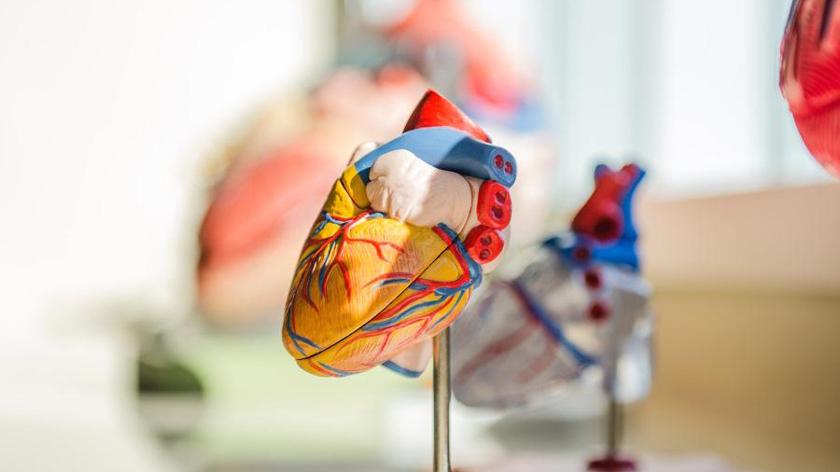Merck’s cardiovascular pipeline delivers at ACC

Merck & Co has said building its cardiovascular medicines business is central to its strategy to manage the loss of patent protection of cancer juggernaut Keytruda in five years, and new studies suggest the plan is on track.
At the American College of Cardiology (ACC) meeting this week, Merck showcased two components of its cardiovascular pipeline – sotatercept for pulmonary arterial hypertension (PAH) and oral cholesterol-lowering drug MK-0616 – which it hopes will make big contributions to its target of $10 billion in annual sales from the franchise from 2030 onwards.
First up, the phase 3 STELLAR trial of activin signalling inhibitor sotatercept, which was the centrepiece of Merck’s $11.5 billion takeover of Acceleron Pharma in 2021.
The big pharma said last December that the study was positive, and at ACC revealed the numbers – sotatercept significantly improved exercise capacity, increasing the six-minute walk distance (6MWD) by 40.8 meters from baseline at week 24 when added to stable background therapy for PAH.
Patients who received sotatercept also had an 84% lower risk of death or worsening of their condition compared with patients on standard therapy - an impressive result that, according to lead investigator Marius Hoeper, of Hannover Medical School in Germany - could lead to a “paradigm shift” in treatment of the disease.
There are already upwards of 10 drugs on the market to treat PAH, but many patients with the debilitating disease continue to have symptoms despite drug therapy, and median survival after diagnosis is only seven years.
Sotatercept is thought to work by blocking abnormal signalling between cells in the pulmonary blood vessels - which become narrowed and scarred in PAH - and which might lead to a partial reversal of the disease process. Current therapies simply dilate the blood vessels to reduce pressure.
Merck’s head of R&D, Dean Li, said the results were “compelling” and the company would be talking to regulatory authorities “with urgency” to try to bring the drug to patients.
Oral PCSK9 heading for phase 3
ACC also saw the presentation of phase 2 results with MK-0616, a PCSK9 inhibitor that would provide an oral alternative to injectable antibodies from Sanofi/Regeneron and Amgen - Praluent (alirocumab) and Repatha (evolocumab), respectively, which are given every two to four weeks - as well as Novartis’ twice-yearly antisense-based shot, Leqvio (inclisiran).
MK-0616 helped reduce levels of low-density lipoprotein (LDL) cholesterol between 41.2% and 60.9% in the study, depending on dose, suggesting it is in the same ballpark for efficacy as its PCSK9 rivals. Lead investigator Christie Ballantyne, of Baylor College of Medicine in the US, said the results show it is “a highly effective compound that was well tolerated”.
Just 2% of patients on MK-0616 discontinued treatment due to adverse events, compared to 1% of the placebo group.
A key advantage for Merck’s drug is that it could slot into therapy alongside oral statins, helping patients meet cholesterol targets without the need for injections. It is estimated that between 7% and 29% of patients who need to lower cholesterol are unable to tolerate statins, while around half don’t meet targets, despite treatment with the drugs.
“[This data reinforces] our confidence that MK-0616 could become the first oral PCSK9 inhibitor, with the potential to change the way patients with hypercholesterolemia who need additional LDL-C reduction are treated,” said Merck’s head of global clinical development, Joerg Koglin.
Merck said it plans to advanced MK-0616 into phase 3 trials before the end of this year, looking at both its ability to reduce LDL-cholesterol, as well as cardiovascular outcomes.
So, will Merck make its $10 billion target for cardiovascular drugs? No doubt, according to analyst Akash Tewari of Jefferies, who reckons that sotatercept will become a $7.5 billion drug at peak - a great return on Merck’s spend on Acceleron - with MK-0616 adding another $2.5 billion to the pot.
Photo by jesse orrico via Unsplash












